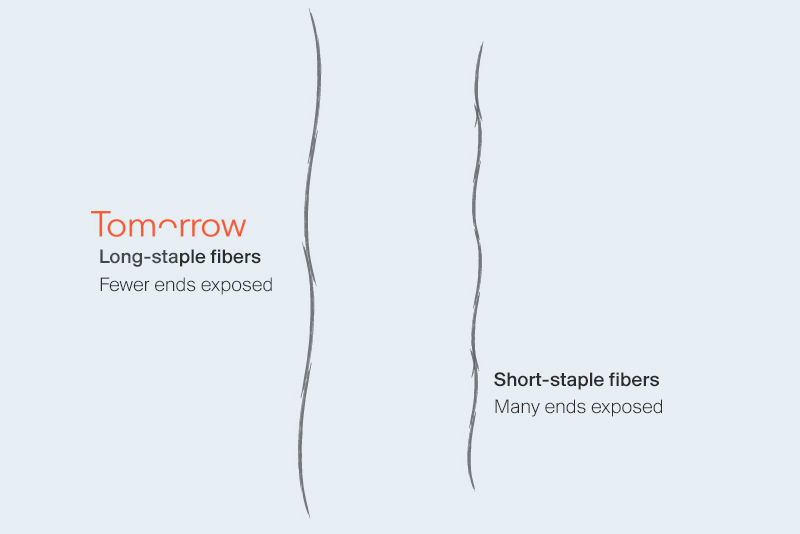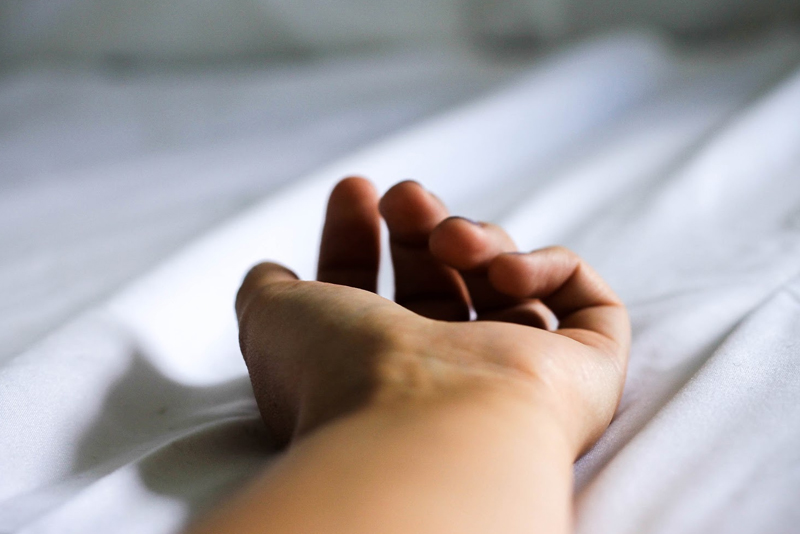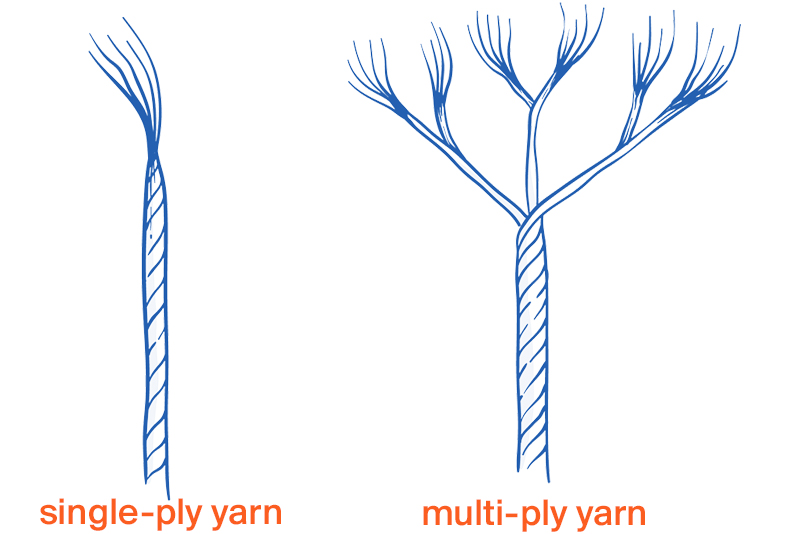Sateen vs Percale Sheets – When shopping for a new set of sheets we usually look for the thread count before the weave pattern. While thread count does matter, it’s the weave pattern that will determine the breathability, durability and softness of your sheets. Here’s a quick reference guide to help you determine which weave pattern best fits your sleep environment.
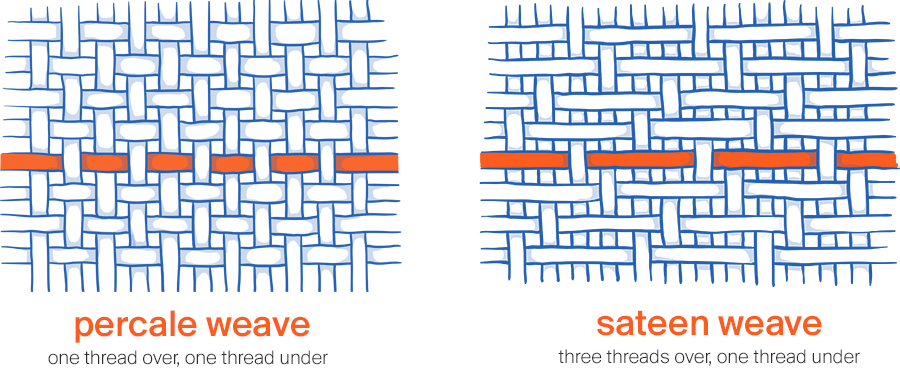
Percale Woven Fabric
- Traditional style weave with one yarn over, one yarn under pattern
- Lightweight and breathable
- Matte finish
- Exceptional durability
Sateen Woven Fabric
- Three-yarn over, one yarn under pattern
- Tightly woven, heavier, and less breathable
- Shiny finish
- Silky-soft feel
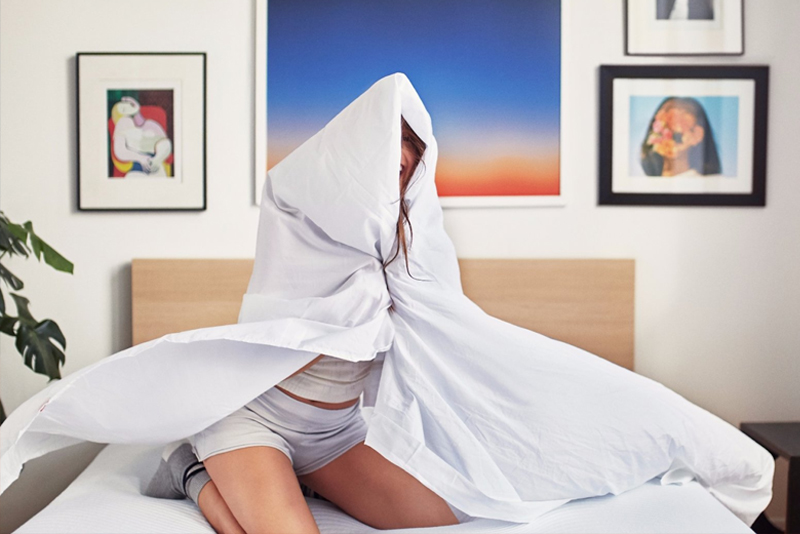
Percale Sheets Sleep Cooler
Your sleep environment can feel drastically different depending on the weave pattern of your sheets. If you seek a cool, crisp and breathable environment then percale is the best weave pattern for you. This pattern provides superior airflow since the fabric has greater amounts of openings between weaves.
Far too often, people purchase sateen woven sheets for the silky smooth feel but don’t realize that sateen actually retains more of your natural body heat.
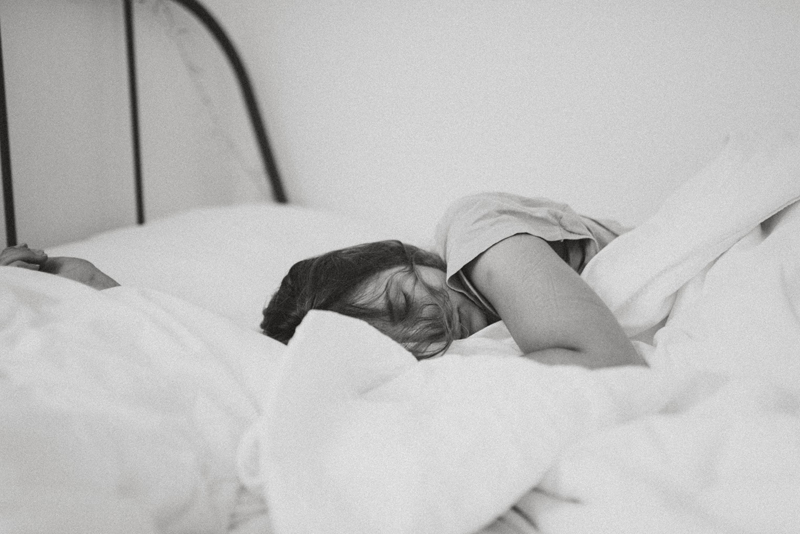
There’s A Difference In Durability Between Sateen vs Percale
If you’re looking for a long lasting quality sheet set, percale is more durable than sateen.
Percale sheets actually become softer with every wash cycle without pilling. Because of their breathable qualities, you can comfortably use percale sheets throughout the entire year. This is especially beneficial for naturally warm sleepers.
The yarn pattern on a set of sateen sheets features three yarns over and one yarn under which provides a silky-soft feel that many people like.
However, this design feature exposes a greater surface area of the threads which results in a faster wear and tear. Sateen’s tightly woven pattern offers a substantial thick feeling (as compared to percale) but retains a shorter lifespan.
The Truth About Thread Count
Far too often consumers focus on the thread count and in turn they directly attribute a higher count to the sheet quality.
However, sheet quality is determined by the length of those threads used rather than the number of threads in a particular sheet set.
For instance, whether a percale or sateen weave, in order to increase the thread count many manufacturers will interweave multiple shorter threads as opposed to using one long thread.
The Difference In Sateen vs Percale Yarn Types As Shown Below
So what’s the deal with single-ply versus multi-ply? A single-ply yarn can be stronger than a multi-ply yarn if the additional fibers are short and frail.
The multi-ply yarn is considered one yarn and is generally marketed as triple the overall thread count. This is done with both percale and sateen weaves.
This technique is often used to increase the overall strength of lower quality cotton ply while creating the perception that you’re purchasing a higher valued sheet. In reality, sheets with higher than 300 – 500 thread count generally use the lower quality leftover yarns.
A Final Thought
Sheet choice is really a matter of preference. Still, it’s important to understand what material causes the particular feel and durability of your sheets so you can be certain you’re picking the best sheet set for your needs.

